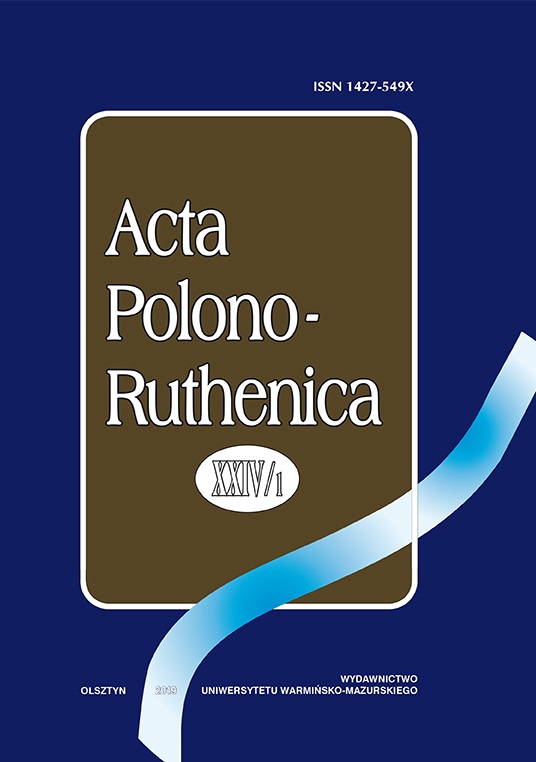Wierzenia i idee sekciarskie w rosjoznawstwie polskim pierwszych dekad wieku XX
Sectarian Beliefs and Ideas in the Polish Studies of Russia in the First Decades of the 20th century
Author(s): Zbigniew KaźmierczykSubject(s): Social Sciences, Language and Literature Studies, Geography, Regional studies, Regional Geography, Theology and Religion, Philology
Published by: Wydawnictwo Uniwersytetu Warmińsko-Mazurskiego w Olsztynie
Keywords: Bogomilism;Slavs;Russian sects;dualism;mentality;escapism;secularization;revolution;destructiveness of science;
Summary/Abstract: The paper discusses Karol Potkański’s study of Russia called Constantine and Methodius (1905) with reference to Tadeusz Nalepiński’s work The Spirit King of Russian. He’s coming!,Władysław Jabłonowski’s Around the Sphinx. Studies of life and world of the Russian people (1901),Two cultures. Historical and literary studies (1913), Stanisław Kutrzeba’s Sources and contrasts of Polish and Russian cultures (1916), Marian Zdziechowski’s Selected works,Bogumił Jasinowski’sEastern Christianity and Russia (1933) and others. It attempts to show the religious studies’ current in the Polish research in Russia which was open not as much to the Orthodox Church as to the Rus-sian sectarianism. The author follows ethnogenetic intuitions of Russia historians signalized after the Russian Revolution of 1905 in relation to their inquiries into widely-comprehended Russian spirituality and psychology. He records what was said about the radical dualism of Slavs and their Iranian origin. He shows it is historically justified to use religious studies’ method in Russian studies. He proves the efficiency of dualism as a model for analyzing Russian history. He indicates the key to history through the sectarian beliefs and ideas of Gnostic-Manichaean provenance.
Journal: Acta Polono-Ruthenica
- Issue Year: 1/2019
- Issue No: XXIV
- Page Range: 131-142
- Page Count: 12
- Language: Polish

